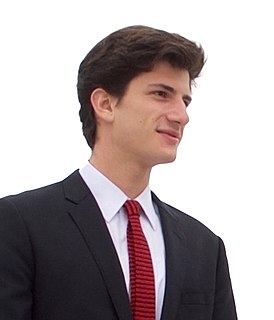A Quote by Reinhold Niebuhr
The separation of church and state is necessary partly because if religion is good then the state shouldn't interfere with the religious vision or with the religious prophet.
Related Quotes
The separation of church and state is necessary partly because if religion is good then the state shouldn't interfere with the religious vision or with the religious prophet. There must be a realm of truth beyond political competence, that's why there must be a separation of churches, but if religion is bad and a bad religion is one that gives an ultimate sanctity to some particular cause. Then religion mustn't interfere with the state - so one of the basic Democratic principles as we know it in America is the separation of church and state.
Today courts wrongly interpret separation of church and state to mean that religion has no place in the public arena, or that morality derived from religion should not be permitted to shape our laws. Somehow freedom for religious expression has become freedom from religious expression. Secularists want to empty the public square of religion and religious-based morality so they can monopolize the shared space of society with their own views. In the process they have made religious believers into second-class citizens.
It is true that traditional Christianity is losing some of its appeal among Americans, but that is a religious, not political, matter. It is worth remembering that the Jeffersonian 'wall of separation' between church and state has always been intended to protect the church from the state as much as the state from the church.
I believe that prayer in public schools should be voluntary. It is difficult for me to see how religious exercises can be a requirement in public schools, given our Constitutional requirement of separation of church and state. I feel that the highly desirable goal of religious education must be principally the responsibility of church and home. I do not believe that public education should show any hostility toward religion, and neither should it inhibit voluntary participation, if it does not interfere with the educational process.
Kennedy believed in religious liberty and the separation of church and state. He did not believe in the right of elected officials to impose their religious views on others. He was the first Catholic ever elected president, and he spent much of the 1960 campaign defending his religion and assuring voters he would not take orders from the Vatican.
The decision for complete religious freedom and for separation of church and state in the eyes of the rest of the world was perhaps the most important decision reached in the New World. Everywhere in the western world of the 18th century, church and state were one; and everywhere the state maintained an established church and tried to force conformity to its dogma.
Today the separation of church and state is America is used to silence the church... The way the concept is used today is totally reversed from the original intent... It is used today as a false political dictum in order to restrict the influence of Christian ideas... To have suggested the state separated from religion and religious influence would have amazed the Founding Fathers.
Religious institutions that use government power in support of themselves and force their views on persons of other faiths, or of no faith, undermine all our civil rights. Moreover, state support of an established religion tends to make the clergy unresponsive to their own people, and leads to corruption within religion itself. Erecting the 'wall of separation between church and state,' therefore, is absolutely essential in a free society.



































